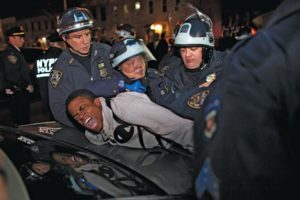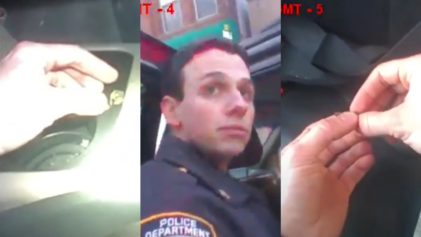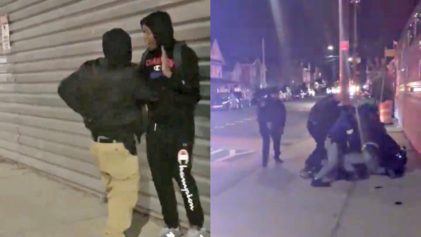
Indeed, the unifying fact in many of the examples of police abuse we have seen in recent months, such as the killing of Eric Garner in New York City and the beating of a homeless woman by a Los Angeles highway patrolman, is that they were recorded by bystanders.
In the years since Emancipation, African-Americans have consistently been abused and killed by police — not to mention the lynchings that were all too common in the early years of the 20th century. Some of the worst race riots in American history — in cities like Atlanta; Philadelphia; East St. Louis, Missouri; and Springfield, Illinois — were ignited by incidences of police abuse.
In recent years, a group called the Malcolm X Grassroots Movement released a report in 2013 revealing that police officers, security guards or self-appointed vigilantes killed at least 313 African-Americans in 2012, a rate of one every 28 hours.
But clearly, releasing reports is not going to stop the abuse. Nor will the arrest, trial and conviction of Police Officer Darren Wilson in St. Louis County for killing Mike Brown last month. Not even endless investigations by Attorney General Eric Holder, whose civil rights division has investigated more law enforcement agencies around the country for illegal practices than at any other time in the Justice Department’s history.
No, the most effective tool to stop police abuse is for every citizen to have his or her cellphone prepped and ready. We all need to become vigilante videographers, alerting every officer in the country to the probability that if he or she engages in abuse, somebody is going to be filming it. We all need to have each other’s back.
We don’t even need to be right on top of the action to create an effective log of the event. It doesn’t have to look like it was directed by Spike Lee. It doesn’t even have to be in focus. As long as the officer’s actions are clear, we move closer to a time when we force the police to check their misbehavior before it occurs.
There’s been talk of outfitting officers across the land with body cameras. In Rialto, California, when the entire police force was outfitted with small body-mounted cameras, in the first year the use of force by officers declined 60 percent, and citizen complaints against police fell by 88 percent.
Now cities ranging from Washington, D.C., to New York City are discussing body cameras, with New York announcing that 60 officers will be equipped with them in a pilot program.
But how long will the nation have to wait for body cameras to become the norm? And who will retain control of the video recorded by the body cameras — the police department?
Until these questions are answered, we all must continue to use the power we hold in our hands to keep the police accountable.


